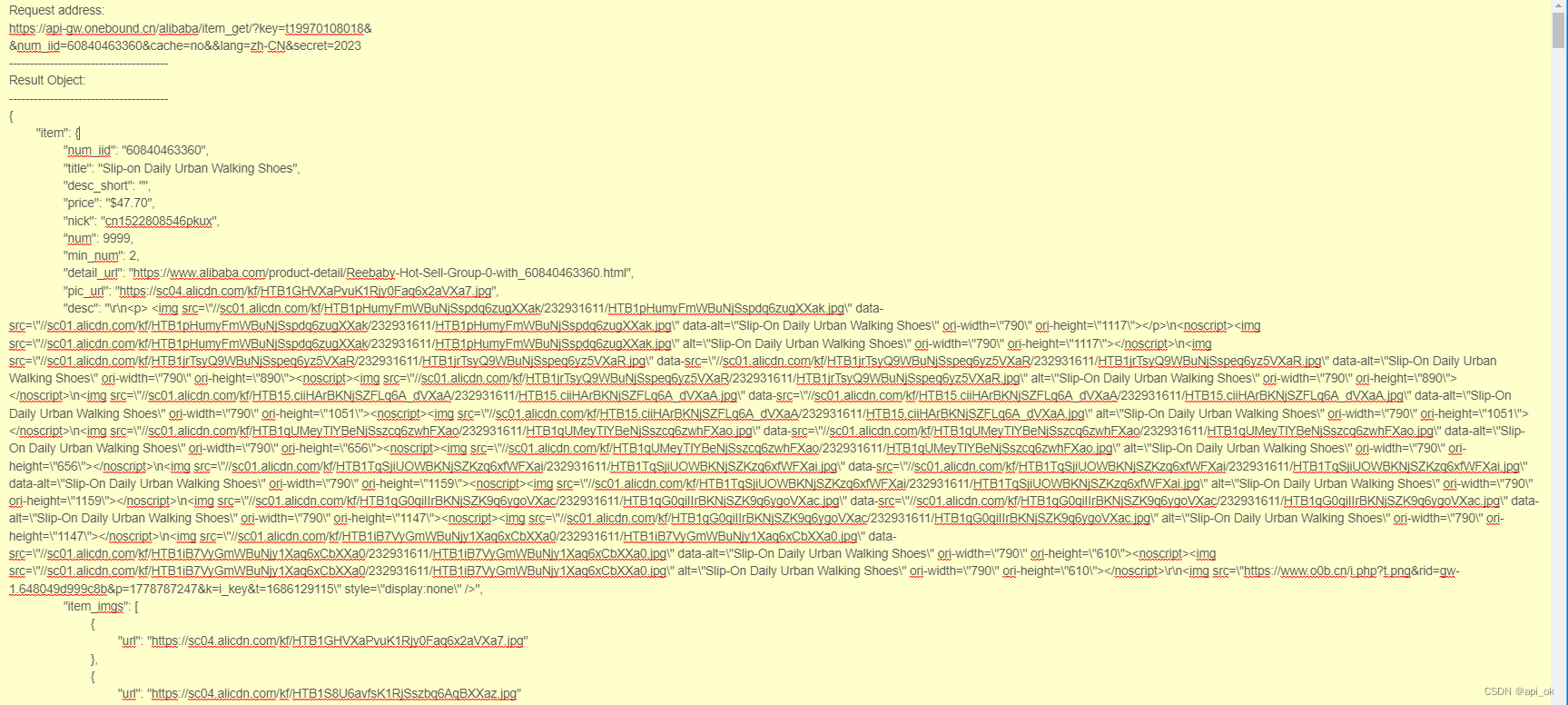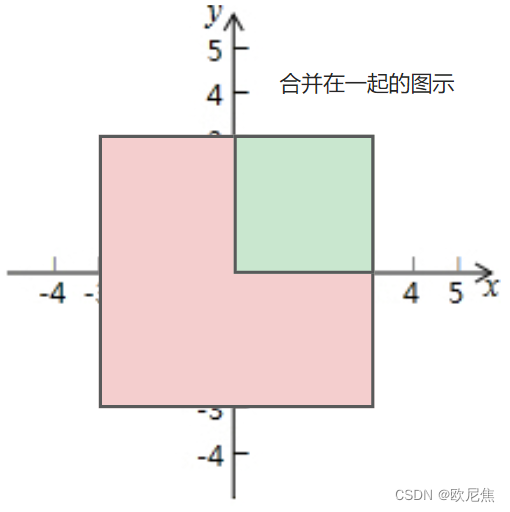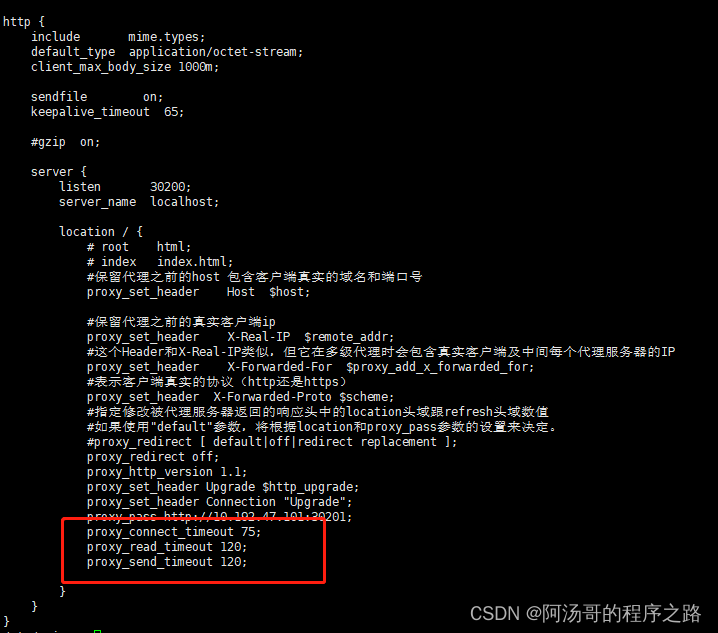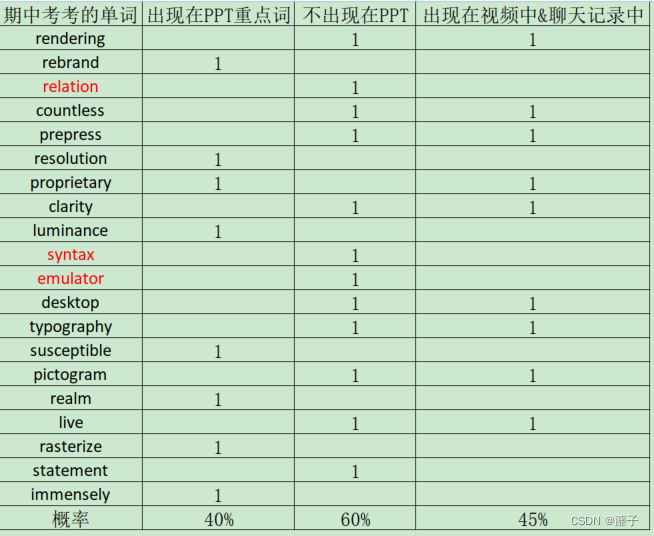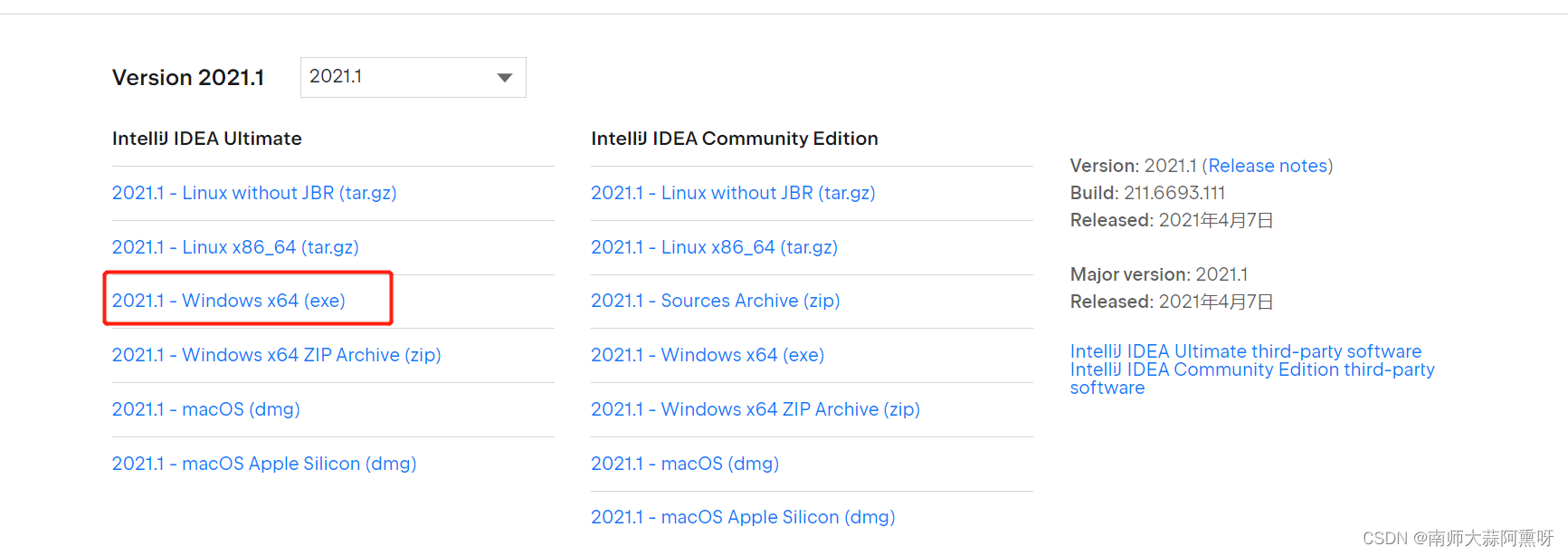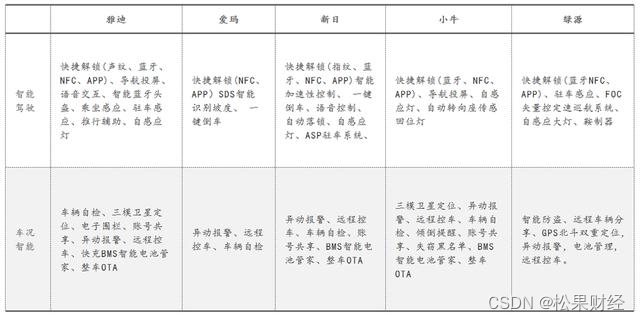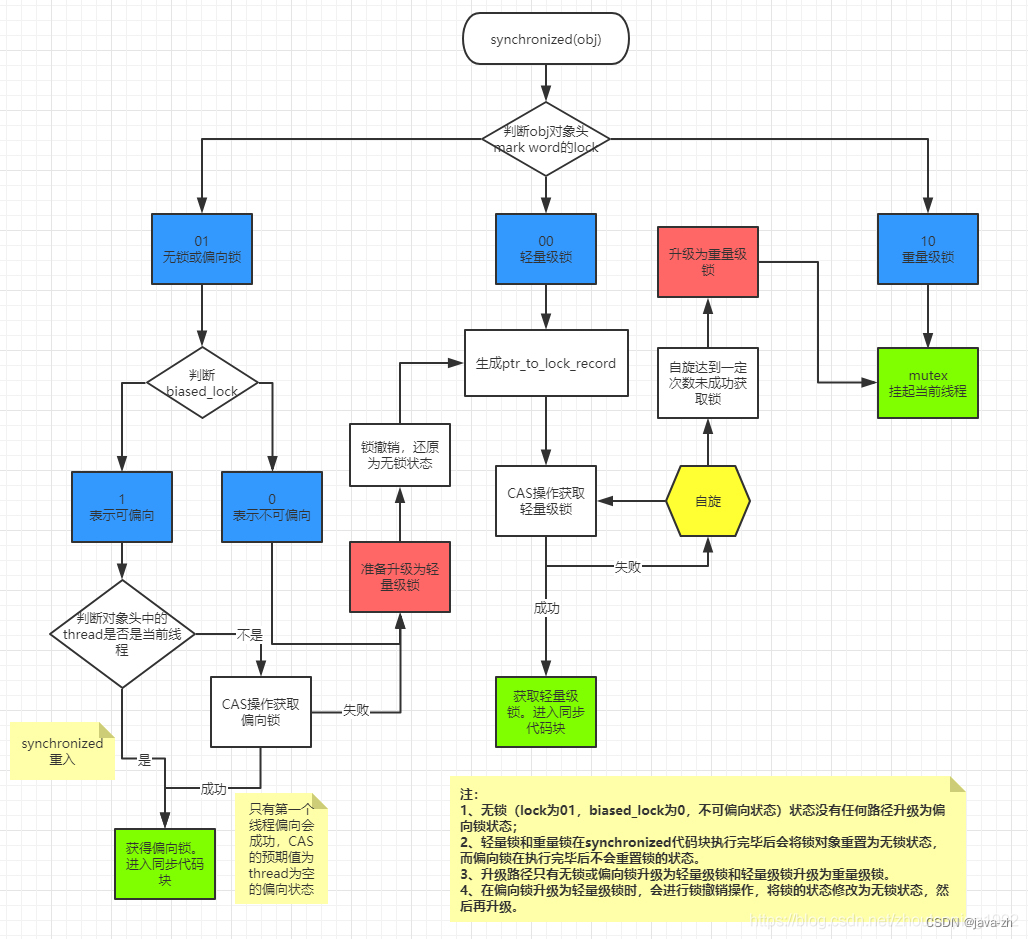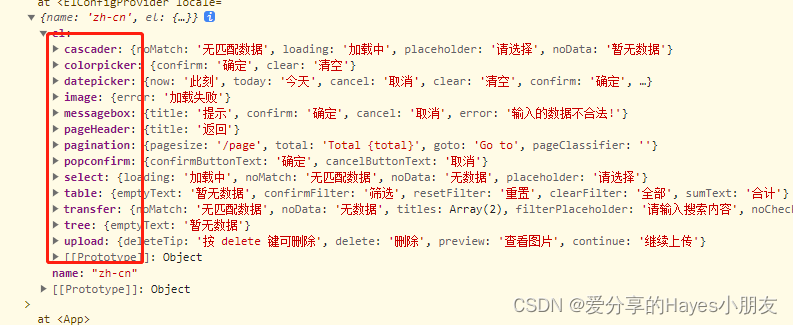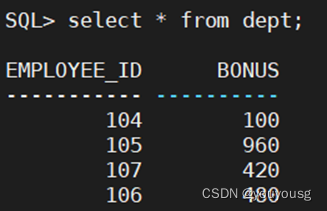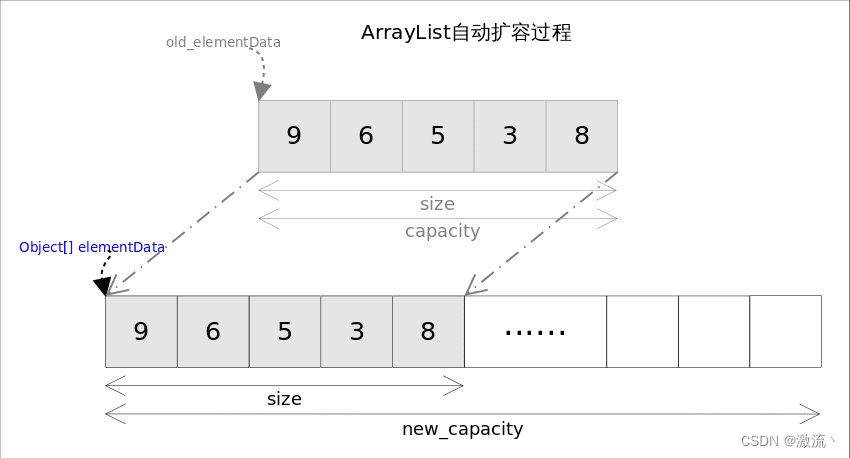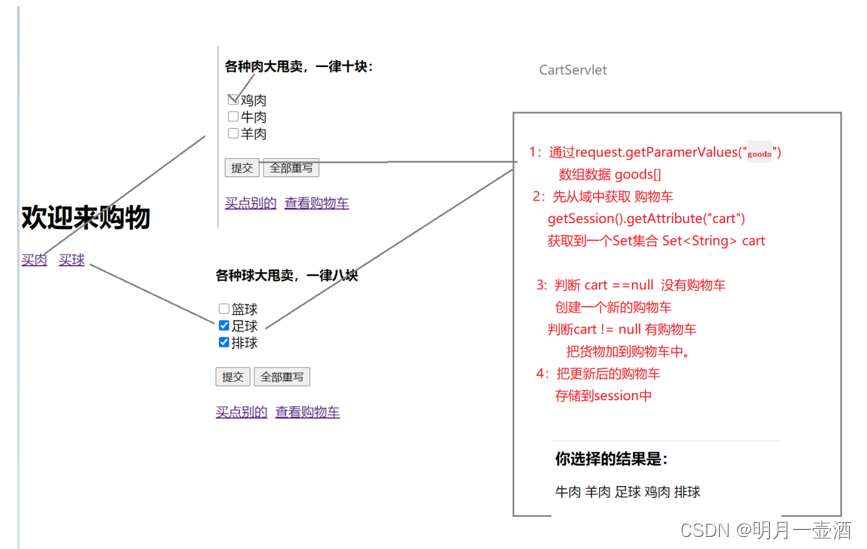Arrays.asList()
将数组转换成List集合
/**
* Returns a fixed-size list backed by the specified array. (Changes to
* the returned list "write through" to the array.) This method acts
* as bridge between array-based and collection-based APIs, in
* combination with {@link Collection#toArray}. The returned list is
* serializable and implements {@link RandomAccess}.
*
* <p>This method also provides a convenient way to create a fixed-size
* list initialized to contain several elements:
* <pre>
* List<String> stooges = Arrays.asList("Larry", "Moe", "Curly");
* </pre>
*
* @param <T> the class of the objects in the array
* @param a the array by which the list will be backed
* @return a list view of the specified array
*/
@SafeVarargs
@SuppressWarnings("varargs")
public static <T> List<T> asList(T... a) {
return new ArrayList<>(a);
}
Arrays.ArrayList
/**
* @serial include
*/
private static class ArrayList<E> extends AbstractList<E>
implements RandomAccess, java.io.Serializable
{
private static final long serialVersionUID = -2764017481108945198L;
private final E[] a;
ArrayList(E[] array) {
a = Objects.requireNonNull(array);
}
@Override
public int size() {
return a.length;
}
@Override
public Object[] toArray() {
return a.clone();
}
@Override
@SuppressWarnings("unchecked")
public <T> T[] toArray(T[] a) {
int size = size();
if (a.length < size)
return Arrays.copyOf(this.a, size,
(Class<? extends T[]>) a.getClass());
System.arraycopy(this.a, 0, a, 0, size);
if (a.length > size)
a[size] = null;
return a;
}
@Override
public E get(int index) {
return a[index];
}
@Override
public E set(int index, E element) {
E oldValue = a[index];
a[index] = element;
return oldValue;
}
@Override
public int indexOf(Object o) {
E[] a = this.a;
if (o == null) {
for (int i = 0; i < a.length; i++)
if (a[i] == null)
return i;
} else {
for (int i = 0; i < a.length; i++)
if (o.equals(a[i]))
return i;
}
return -1;
}
@Override
public boolean contains(Object o) {
return indexOf(o) != -1;
}
@Override
public Spliterator<E> spliterator() {
return Spliterators.spliterator(a, Spliterator.ORDERED);
}
@Override
public void forEach(Consumer<? super E> action) {
Objects.requireNonNull(action);
for (E e : a) {
action.accept(e);
}
}
@Override
public void replaceAll(UnaryOperator<E> operator) {
Objects.requireNonNull(operator);
E[] a = this.a;
for (int i = 0; i < a.length; i++) {
a[i] = operator.apply(a[i]);
}
}
@Override
public void sort(Comparator<? super E> c) {
Arrays.sort(a, c);
}
}
UnsupportedOperationException
Arrays.asList创建list,当向这个List添加或删除元素时,会报java.lang.UnsupportedOperationException
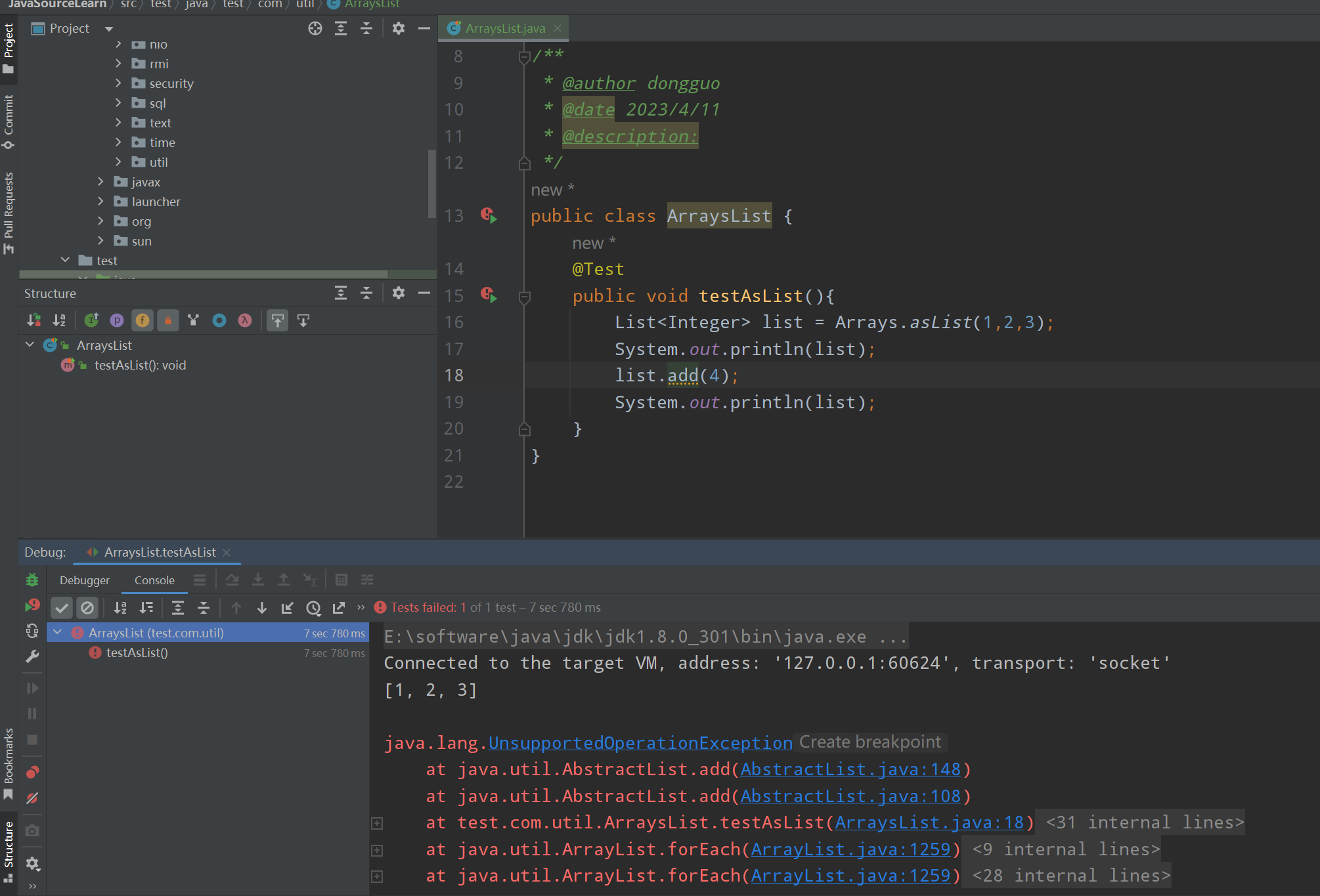
从源码中可知,Arrays.asList创建的ArrayList是Arrays的一个静态内部类,其中add、remove、clear方法都是没有实现的。
那么子类没有实现这些方法,肯定是调用了父类的方法
AbstractList.java
AbstractList.java
/**
* {@inheritDoc}
*
* <p>This implementation always throws an
* {@code UnsupportedOperationException}.
*
* @throws UnsupportedOperationException {@inheritDoc}
* @throws ClassCastException {@inheritDoc}
* @throws NullPointerException {@inheritDoc}
* @throws IllegalArgumentException {@inheritDoc}
* @throws IndexOutOfBoundsException {@inheritDoc}
*/
public void add(int index, E element) {
throw new UnsupportedOperationException();
}
很明显直接抛出UnsupportedOperationException
总结
该方法得到的List的长度是不可变的。当向这个List添加或删除元素时,会报java.lang.UnsupportedOperationException
这里注意一下,set()编辑是可以的
如果你的list只是用来遍历,那么可以用Arrays.asList()获得,但是如果你的list还想用添加、删除方法,那么就要放弃Arrays.asList(),使用new ArrayList的方法获得
